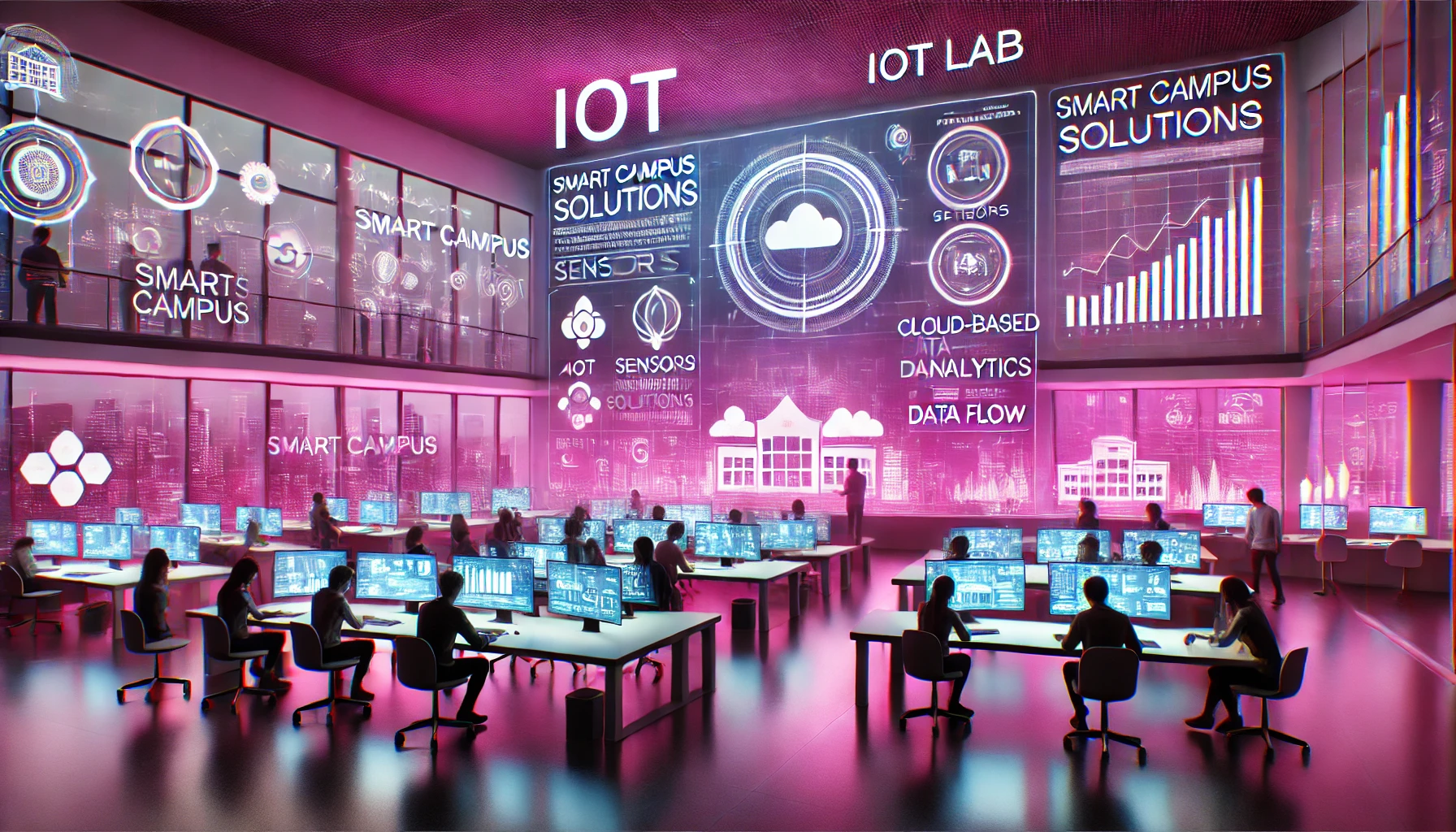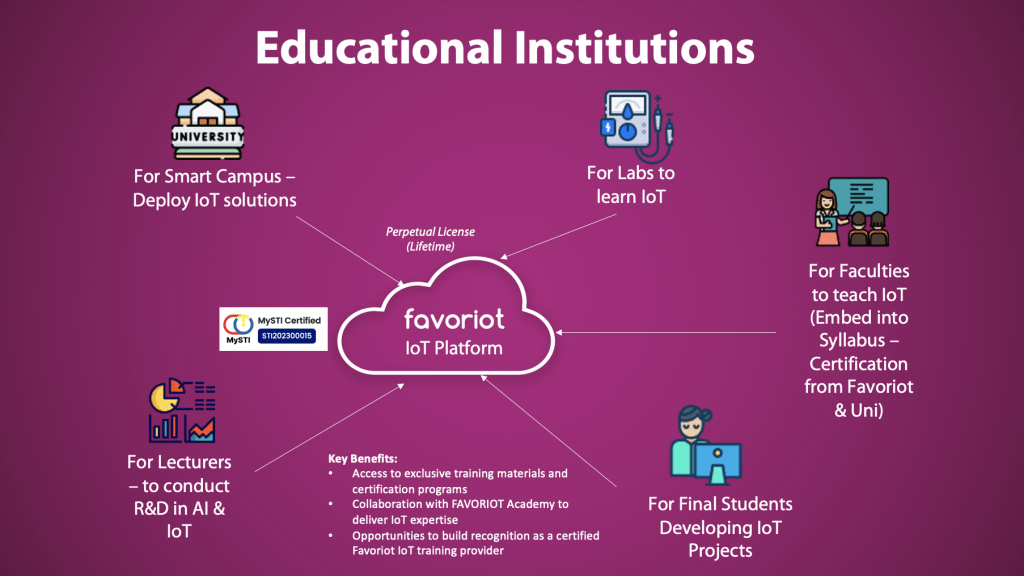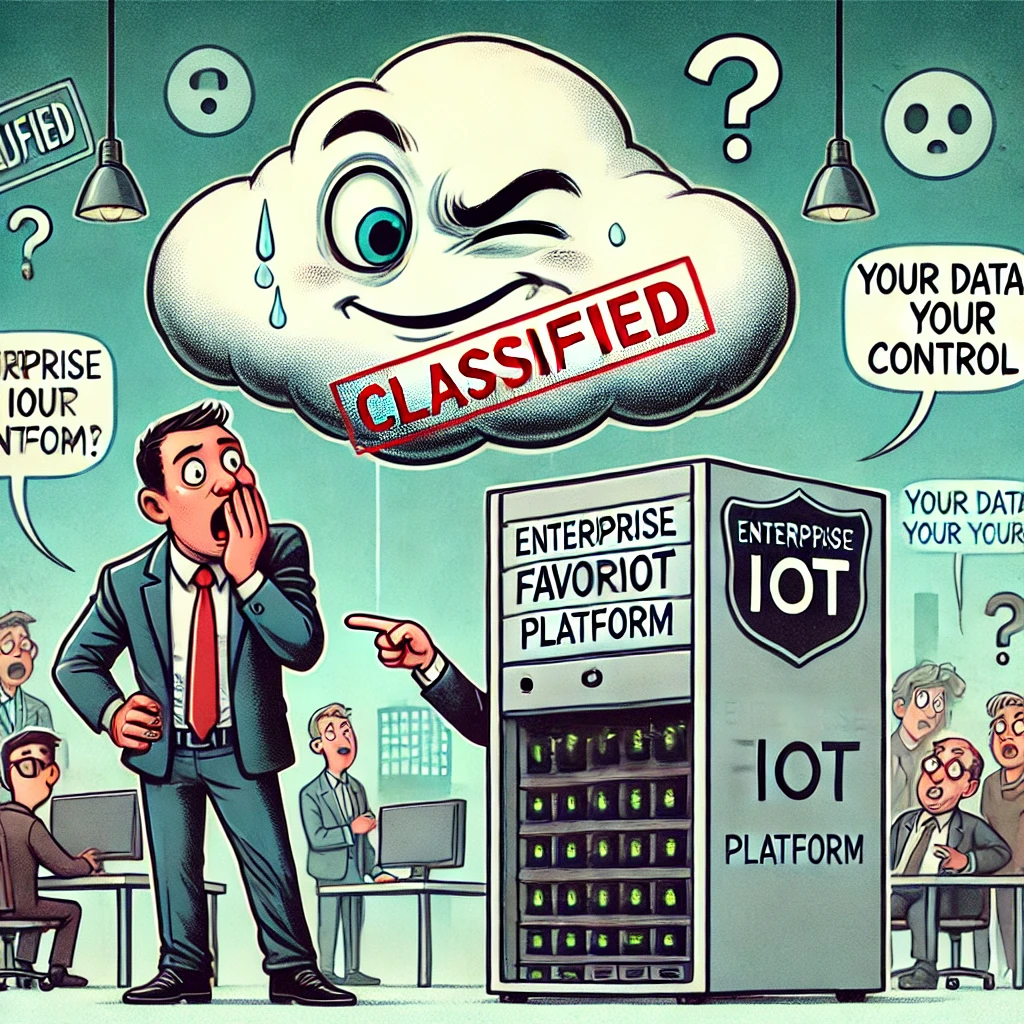
Transforming IoT Education: How Favoriot Empowers Universities and Lecturers
February 28th, 2025 Posted by favoriotadmin BLOG, CAREER, Internet of Things, IOT PLATFORM, Training 0 thoughts on “Transforming IoT Education: How Favoriot Empowers Universities and Lecturers”The Internet of Things (IoT) is no longer just a buzzword—it’s a crucial technology shaping industries worldwide. Yet, many educational institutions struggle to integrate IoT into their curriculum effectively. Lack of hands-on experience, limited infrastructure, and insufficient faculty support make it challenging for students to grasp real-world IoT applications.
This is where Favoriot’s IoT Platform comes in. It offers a scalable, cloud-based ecosystem that enables universities to teach, research, and deploy IoT solutions seamlessly.
Challenges in Teaching IoT in Universities

Before exploring how Favoriot provides solutions, let’s look at the common obstacles faced by educational institutions:
1. Limited Access to Hands-on Learning
Many universities rely on theoretical teaching without providing students access to live IoT environments where they can experiment with data collection, analytics, and device integration.
2. High Costs of IoT Deployment
Deploying smart campus IoT projects can be expensive, requiring specialized infrastructure and technical expertise that many institutions lack.
3. Lack of Research Support for Lecturers
Faculty members who want to conduct IoT and AI research often struggle with data collection, storage, and analysis, limiting their ability to innovate.
4. Difficulty Embedding IoT into Curricula
Many institutions do not have structured IoT certification programs or standardized materials to help lecturers teach IoT effectively.
5. Gaps Between Academic Learning and Industry Requirements
Students graduate with theoretical knowledge but lack industry-recognized IoT certifications that enhance their employability.
How Favoriot’s IoT Ecosystem Solves These Challenges
Favoriot provides a comprehensive, cloud-based IoT platform that transforms how universities teach and research IoT. Here’s how:
1. Hands-on IoT Labs for Students
- Connect IoT devices and sensors to a real-time cloud platform.
- Collect, visualize, and analyze IoT data to gain practical experience.
- Learn API integrations and develop IoT applications.
2. Smart Campus IoT Deployments
Favoriot enables universities to deploy IoT-based smart campus solutions, including:
- Energy monitoring systems to track and optimize power usage.
- Smart security solutions with IoT-powered surveillance.
- Environmental monitoring for sustainability initiatives.
3. Research Support for Lecturers
- Faculty members can use Favoriot’s cloud platform to store and analyze IoT data.
- Research AI-driven IoT applications for smart cities, healthcare, and automation.
4. Simplifying IoT Education for Faculty Members
- Favoriot Academy provides training materials and structured IoT courses.
- Universities can embed Favoriot-backed IoT certification programs into their curriculum.
5. Industry-Recognized IoT Certification for Students
- Students graduate with real-world IoT project experience.
- Gain certifications co-branded with universities and Favoriot, boosting career opportunities.
Why Favoriot is the Ideal IoT Education Partner
✅ Real-world IoT Learning – Hands-on training using a cloud-based IoT ecosystem.
✅ Scalable Smart Campus Solutions – Easy deployment for university-wide IoT applications.
✅ Advanced Research Capabilities – Support for AI and IoT research initiatives.
✅ Structured Certification Programs – IoT training aligned with industry needs.
✅ Bridging Academia & Industry – Making students job-ready with practical IoT experience.
With Favoriot’s IoT Platform, universities can empower their students, support faculty research, and bridge the gap between education and industry.
For more details, visit FAVORIOT.

